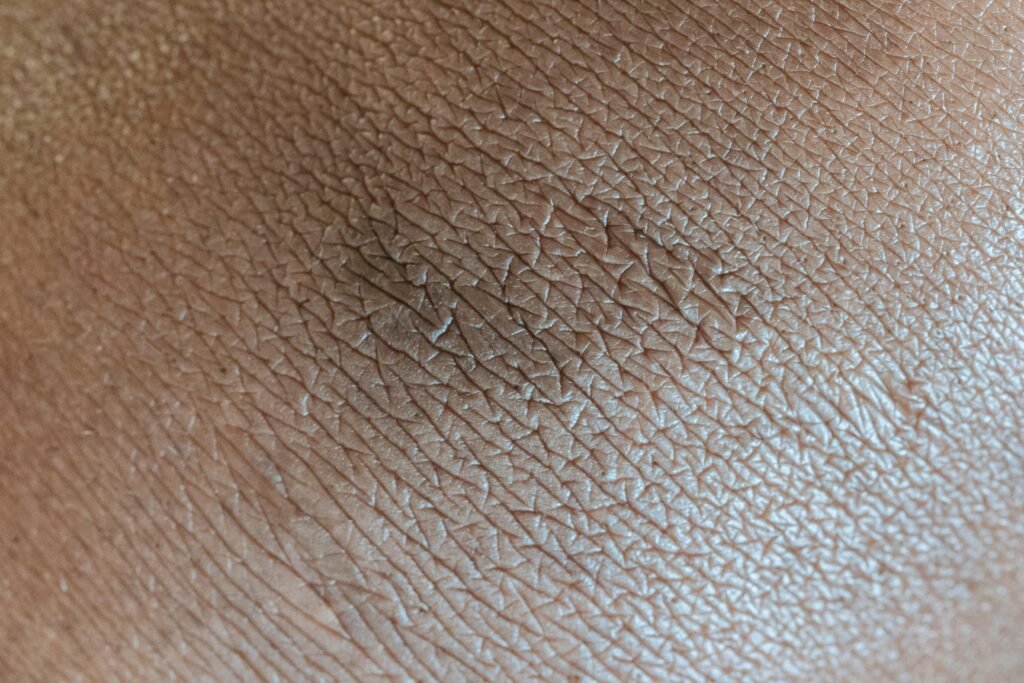In the intricate realm of skincare, delving into the role of hormones in skin health where hormones intricately shape our skin’s vitality. This blog post unveils the profound impact of hormonal changes on various skin conditions, offering insights into the dynamic interplay that narrates our skin’s well-being. It will help you uncover the symphony of hormonal influences and understand their pivotal role in maintaining vibrant and healthy skin. If you are interested, join us as we navigate through the intricate landscape where hormones play a key role in sculpting the narrative of skin health.
Understanding Hormones and Their Impact on the Skin Health

Overview of Hormones
Hormones, the conductors of bodily functions, include estrogen, progesterone, testosterone, and cortisol. These biochemical messengers play vital roles in physiological processes. Estrogen and progesterone, produced in the ovaries, regulate the menstrual cycle and impact skin health. Testosterone, predominant in males, influences sebum production, while cortisol responds to stress.
In this section, we delve into the essential hormones—estrogen, progesterone, testosterone, and cortisol—each playing a unique role in maintaining the delicate balance of our skin.
1. Estrogen:
As a key hormone, estrogen contributes significantly to skin elasticity, hydration, and collagen production. Throughout the menstrual cycle, pregnancy, and menopause, estrogen levels undergo fluctuations, exerting a profound influence on skin conditions at various life stages.
2. Progesterone:
In harmonious collaboration with estrogen, progesterone takes an active role in regulating the menstrual cycle and enhancing skin smoothness. Imbalances in estrogen and progesterone levels may contribute to a range of skin issues, underlining the interconnected nature of these hormones.
3. Testosterone:
Predominant in males but also present in females, testosterone plays a crucial role in influencing sebum production. Elevated testosterone levels, particularly during puberty, can result in heightened oiliness and contribute to the development of acne.
4. Cortisol:
Known widely as the stress hormone, cortisol can exert detrimental effects on the skin. Elevated cortisol levels are closely associated with conditions like acne and can compromise the skin’s natural ability to repair and regenerate.
Hormonal Changes Across Life Stages
Life stages usher in distinctive hormonal shifts, each chapter contributing to the complex symphony of skin health. Firstly, puberty marks a surge in androgens, notably testosterone, affecting sebum production and contributing to acne. Secondly, menstruation introduces cyclic variations in estrogen and progesterone, influencing various skin conditions.
Additionally, pregnancy brings its own hormonal fluctuations, influencing pigmentation and skin sensitivity. Lastly, menopause, characterized by declining estrogen, leads to collagen loss, impacting the skin’s texture and appearance. Together, these life stages weave a narrative of hormonal influence on the ever-changing canvas of our skin.
Hormones and Skin Conditions

1. Acne and Hormones:
A deeper exploration awaits as we unravel the symbiotic relationship between androgens, sebum production, and the emergence of acne. We scrutinize the distinct patterns of hormonal acne, shedding light on its characteristic manifestations.
Hormones significantly impact skin health, with a key role in the development of acne. Androgens, particularly testosterone, stimulate increased sebum production in the skin’s oil glands. This excess sebum, combined with factors like dead skin cells and bacteria, contributes to clogged pores and the formation of acne lesions.
Puberty marks a notable surge in androgen levels, shaping the distinct patterns of adolescent acne. Additionally, hormonal fluctuations during the menstrual cycle can influence acne development, leading to breakouts corresponding with hormonal changes. Conditions such as polycystic ovary syndrome (PCOS) can elevate androgen levels, further intensifying acne concerns.
Understanding the intricate relationship between hormones and acne is crucial for effective skincare. Tailoring skincare routines to address hormonal imbalances and choosing ingredients that regulate sebum production can be instrumental in managing and preventing acne outbreaks associated with hormonal fluctuations.
2. Hormones and Skin Aging:
The complex relationship between hormones and skin aging is a pivotal aspect of skincare. As individuals age, hormonal changes play a significant role in shaping alterations in the skin’s structure and appearance. For instance, the decline in estrogen levels during menopause accelerates collagen loss, resulting in the formation of wrinkles and fine lines.
To comprehensively address these changes, it is imperative to understand how hormones influence the aging process. This knowledge empowers individuals to adopt targeted skincare practices aimed at mitigating the effects of hormonal fluctuations on the skin. By incorporating ingredients and routines specifically designed to support hormonal balance, individuals can navigate the aging process with a focus on maintaining skin vitality
Skin Pigmentation and Hormones:

In this segment, we examine the intricate dance of hormones, particularly the melanocyte-stimulating hormone (MSH), and its impact on pigmentation changes. Conditions such as melasma come under scrutiny as we decipher the language of hormonal influence on skin coloring.
Hormones and Skin Sensitivity: The exploration deepens as we probe into the nexus between hormonal fluctuations and heightened skin sensitivity. Conditions like rosacea take center stage, revealing the intricate interplay between hormones and skin reactivity.
Section 3: Balancing Hormones for Healthy Skin
Lifestyle Factors:
- Diet and Nutrition:
- Balancing hormones through diet and nutrition is key for overall well-being. Incorporating nutrient-rich foods like fruits, vegetables, whole grains, lean proteins, and healthy fats supports hormone production and function. Omega-3 rich foods like salmon and flaxseeds reduce inflammation, while fiber-rich foods aid in hormone metabolism. In addition, avoiding processed foods and excessive caffeine also play vital roles in hormone balance. By prioritizing a balanced diet, you can support your body’s natural hormone equilibrium and enhance your overall health.
- Regular Exercise:
- Regular exercise is key to balancing hormones. It triggers the release of endorphins, reducing stress levels, which in turn helps regulate hormones. Exercise aids in weight management, preventing insulin resistance and hormonal imbalances. It also promotes better sleep, which is crucial for hormone regulation. Whether it’s cardio, strength training, or yoga, staying active supports hormone balance and overall well-being.
- Stress Management:
- Effective stress management techniques play a crucial role in maintaining hormonal balance. Chronic stress can disrupt hormone levels, leading to imbalances that affect various bodily functions. By incorporating stress-reduction activities such as meditation, deep breathing exercises, or engaging in hobbies, individuals can lower stress hormones like cortisol, thus promoting hormonal equilibrium.
- Adequate Sleep:
- Prioritizing sufficient sleep is essential for hormonal health. Adequate sleep allows the body to regulate hormones involved in appetite control, metabolism, and stress response. Aim for 7-9 hours of quality sleep each night to support overall hormonal balance and well-being.
Natural Remedies:
- Herbal Remedies:
- When it comes to balancing hormones naturally, herbal remedies can be a helpful option. Some herbs like chasteberry, black cohosh, ashwagandha, maca, and rhodiola have been used for centuries to ease PMS symptoms, support menopausal health, and reduce stress. However, it’s important to talk to a healthcare provider before trying these remedies, as they may interact with medications or have side effects for some people.
- Essential Oils:
- Clary sage, lavender, geranium, ylang ylang, and frankincense are known for their hormone-balancing properties. They can help ease menstrual discomfort, reduce stress, and support emotional well-being. Remember to use essential oils safely and seek guidance if you have health concerns or are pregnant or breastfeeding.
Consulting Healthcare Professionals:
Consulting healthcare professionals offers personalized strategies and treatments to reduce stress efficiently. Through tailored plans and therapeutic interventions, they address individual stress triggers and provide ongoing support, empowering individuals to develop healthy coping mechanisms. With their expertise, healthcare professionals play a crucial role in promoting holistic well-being and achieving lasting stress reduction.
Conclusion:
Understanding how hormones affect skin health is crucial for effective skincare. By acknowledging their impact and adopting targeted practices, individuals can navigate this relationship more effectively. Additionally, making lifestyle changes such as balanced nutrition, exercise, stress management, and seeking professional guidance further enhances skin health. Ultimately, embracing a holistic approach empowers individuals to achieve lasting well-being and radiance.